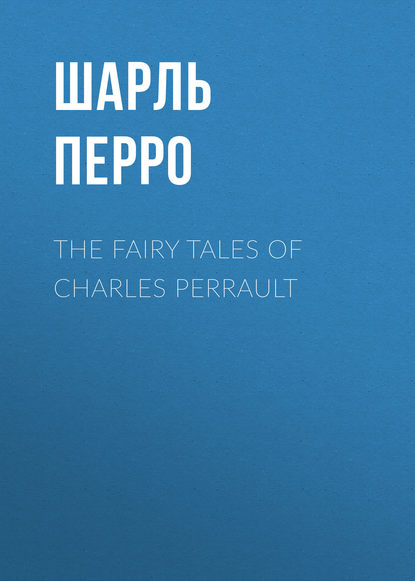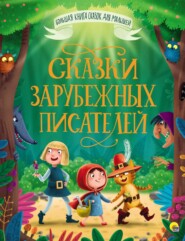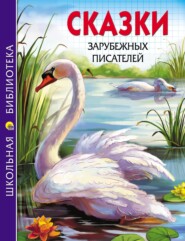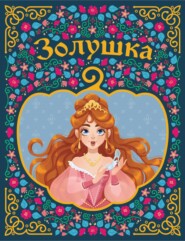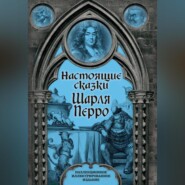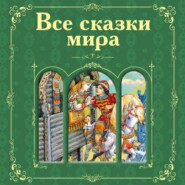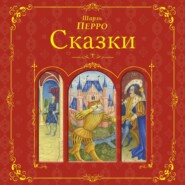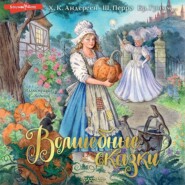По всем вопросам обращайтесь на: info@litportal.ru
(©) 2003-2024.
✖
The Fairy Tales of Charles Perrault
Настройки чтения
Размер шрифта
Высота строк
Поля
"You see, sir," said the Marquis, "this is a meadow which never fails to yield a plentiful harvest every year."
The Master Cat, who still went on before, met with some reapers, and said to them:
"Good people, you who are reaping, if you do not tell the King that all this corn belongs to the Marquis of Carabas, you shall be chopped as small as mince-meat."
The King, who passed by a moment after, would needs know to whom all that corn, which he then saw, did belong. "To my lord Marquis of Carabas," replied the reapers; and the King again congratulated the Marquis.
The Master Cat, who went always before, said the same words to all he met; and the King was astonished at the vast estates of my lord Marquis of Carabas.
Monsieur Puss came at last to a stately castle, the master of which was an Ogre, the richest had ever been known; for all the lands which the King had then gone over belonged to this castle. The Cat, who had taken care to inform himself who this Ogre was, and what he could do, asked to speak with him, saying, he could not pass so near his castle, without having the honour of paying his respects to him.
The Ogre received him as civilly as an Ogre could do, and made him sit down.
"I have been assured," said the Cat, "that you have the gift of being able to change yourself into all sorts of creatures you have a mind to; you can, for example, transform yourself into a lion, or elephant, and the like."
"This is true," answered the Ogre very briskly, "and to convince you, you shall see me now become a lion."
Puss was so sadly terrified at the sight of a lion so near him, that he immediately got into the gutter, not without abundance of trouble and danger, because of his boots, which were ill-suited for walking upon the tiles. A little while after, when Puss saw that the Ogre had resumed his natural form, he came down, and owned he had been very much frightened.
"I have been moreover informed," said the Cat, "but I know not how to believe it, that you have also the power to take on you the shape of the smallest animals; for example, to change yourself into a rat or a mouse; but I must own to you, I take this to be impossible."
"Impossible?" cried the Ogre, "you shall see that presently," and at the same time changed into a mouse, and began to run about the floor.
Puss no sooner perceived this, but he fell upon him, and ate him up.
Meanwhile the King, who saw, as he passed, this fine castle of the Ogre's, had a mind to go into it. Puss, who heard the noise of his Majesty's coach running over the drawbridge, ran out and said to the King:
"Your Majesty is welcome to this castle of my lord Marquis of Carabas."
"What! my lord Marquis?" cried the King, "and does this castle also belong to you? There can be nothing finer than this court, and all the stately buildings which surround it; let us go into it, if you please."
The Marquis gave his hand to the Princess, and followed the King, who went up first. They passed into a spacious hall, where they found a magnificent collation which the Ogre had prepared for his friends, who were that very day to visit him, but dared not to enter knowing the King was there. His Majesty was perfectly charmed with the good qualities of my lord Marquis of Carabas, as was his daughter who was fallen violently in love with him; and seeing the vast estate he possessed, said to him, after having drank five or six glasses:
"It will be owing to yourself only, my lord Marquis, if you are not my son-in-law."
The Marquis making several low bows, accepted the honour which his Majesty conferred upon him, and forthwith, that very same day, married the Princess.
Puss became a great lord, and never ran after mice any more, but only for his diversion.
The Moral
How advantageous it may be,
By long descent of pedigree,
T'enjoy a great estate,
Yet knowledge how to act, we see,
Join'd with consummate industry,
(Nor wonder ye thereat)
Doth often prove a greater boon,
As should be to young people known.
Another
If the son of a miller so soon gains the heart
Of a beautiful princess, and makes her impart
Sweet languishing glances, eyes melting for love,
It must be remark'd of fine clothes how they move,
And that youth, a good face, a good air, with good mien,
Are not always indifferent mediums to win
The love of the fair, and gently inspire
The flames of sweet passion, and tender desire.
Cinderilla or The Little Glass Slipper
Once there was a gentleman who married, for his second wife, the proudest and most haughty woman that was ever seen. She had, by a former husband, two daughters of her own humour and they were indeed exactly like her in all things. He had likewise, by another wife, a young daughter, but of unparalleled goodness and sweetness of temper, which she took from her mother, who was the best creature in the world.
No sooner were the ceremonies of the wedding over, but the stepmother began to shew herself in her colours. She could not bear the good qualities of this pretty girl; and the less, because they made her own daughters appear the more odious. She employed her in the meanest work of the house; she scoured the dishes, tables, &c. and rubbed Madam's chamber, and those of Misses, her daughters; she lay up in a sorry garret, upon a wretched straw-bed, while her sisters lay in fine rooms, with floors all inlaid, upon beds of the very newest fashion, and where they had looking-glasses so large, that they might see themselves at their full length, from head to foot.
The poor girl bore all patiently, and dared not tell her father, who would have rattled her off; for his wife governed him intirely. When she had done her work, she used to go into the chimney-corner, and sit down among cinders and ashes, which made her commonly be called Cinder-breech; but the youngest, who was not so rude and uncivil as the eldest, called her Cinderilla. However, Cinderilla, notwithstanding her mean apparel, was a hundred times handsomer than her sisters, tho' they were always dressed very richly.
It happened that the King's son gave a ball, and invited all persons of fashion to it. Our young misses were also invited; for they cut a very grand figure among the quality. They were mightily delighted at this invitation, and wonderfully busy in chusing out such gowns, petticoats, and head-clothes as might best become them. This was a new trouble to Cinderilla; for it was she who ironed her sisters' linen, and plaited their ruffles; they talked all day long of nothing but how they should be dressed. "For my part," said the eldest, "I will wear my red velvet suit, with French trimming." "And I," said the youngest, "shall only have my usual petticoat; but then, to make amends for that, I will put on my gold-flowered manteau, and my diamond stomacher, which is far from being the most ordinary one in the world." They sent for the best tire-woman they could get, to make up their head-dresses, and adjust their double-pinners,[3 - 'Pinners' were coifs with two long side-flaps pinned on. 'Double-pinners' – with two side-flaps on each side – accurately translates the French cornettes à deux rangs.] and they had their red brushes, and patches from the fashionable maker.
Cinderilla was likewise called up to them to be consulted in all these matters, for she had excellent notions, and advised them always for the best, nay and offered her service to dress their heads, which they were very willing she should do. As she was doing this, they said to her:
"Cinderilla, would you not be glad to go to the ball?"
"Ah!" said she, "you only jeer at me; it is not for such as I am to go thither."
"Thou art in the right of it," replied they, "it would make the people laugh to see a Cinder-breech at a ball."
Any one but Cinderilla would have dressed their heads awry, but she was very good, and dressed them perfectly well. They were almost two days without eating, so much they were transported with joy; they broke above a dozen of laces in trying to be laced up close, that they might have a fine slender shape, and they were continually at their looking-glass. At last the happy day came; they went to Court, and Cinderilla followed them with her eyes as long as she could, and when she had lost sight of them she fell a-crying.
Her godmother, who saw her all in tears, asked her what was the matter.
"I wish I could – , I wish I could – ;" she was not able to speak the rest, being interrupted by her tears and sobbing.
This godmother of hers, who was a Fairy, said to her:
"Thou wishest thou couldest go to the ball, is it not so?"
"Y – es," cried Cinderilla, with a great sigh.
"Well," said her godmother, "be but a good girl, and I will contrive that thou shalt go." Then she took her into her chamber, and said to her:
"Run into the garden, and bring me a pumpkin."
Cinderilla went immediately to gather the finest she could get, and brought it to her godmother, not being able to imagine how this pumpkin could make her go to the ball. Her godmother scooped out all the inside of it, leaving nothing but the rind; which done, she struck it with her wand, and the pumpkin was instantly turned into a fine coach, gilded all over with gold.
She then went to look into her mouse-trap, where she found six mice all alive, and ordered Cinderilla to lift up a little the trap-door, when giving each mouse, as it went out, a little tap with her wand, the mouse was at that moment turned into a fair horse, which altogether made a very fine set of six horses of a beautiful mouse-coloured dapple-grey.
The Master Cat, who still went on before, met with some reapers, and said to them:
"Good people, you who are reaping, if you do not tell the King that all this corn belongs to the Marquis of Carabas, you shall be chopped as small as mince-meat."
The King, who passed by a moment after, would needs know to whom all that corn, which he then saw, did belong. "To my lord Marquis of Carabas," replied the reapers; and the King again congratulated the Marquis.
The Master Cat, who went always before, said the same words to all he met; and the King was astonished at the vast estates of my lord Marquis of Carabas.
Monsieur Puss came at last to a stately castle, the master of which was an Ogre, the richest had ever been known; for all the lands which the King had then gone over belonged to this castle. The Cat, who had taken care to inform himself who this Ogre was, and what he could do, asked to speak with him, saying, he could not pass so near his castle, without having the honour of paying his respects to him.
The Ogre received him as civilly as an Ogre could do, and made him sit down.
"I have been assured," said the Cat, "that you have the gift of being able to change yourself into all sorts of creatures you have a mind to; you can, for example, transform yourself into a lion, or elephant, and the like."
"This is true," answered the Ogre very briskly, "and to convince you, you shall see me now become a lion."
Puss was so sadly terrified at the sight of a lion so near him, that he immediately got into the gutter, not without abundance of trouble and danger, because of his boots, which were ill-suited for walking upon the tiles. A little while after, when Puss saw that the Ogre had resumed his natural form, he came down, and owned he had been very much frightened.
"I have been moreover informed," said the Cat, "but I know not how to believe it, that you have also the power to take on you the shape of the smallest animals; for example, to change yourself into a rat or a mouse; but I must own to you, I take this to be impossible."
"Impossible?" cried the Ogre, "you shall see that presently," and at the same time changed into a mouse, and began to run about the floor.
Puss no sooner perceived this, but he fell upon him, and ate him up.
Meanwhile the King, who saw, as he passed, this fine castle of the Ogre's, had a mind to go into it. Puss, who heard the noise of his Majesty's coach running over the drawbridge, ran out and said to the King:
"Your Majesty is welcome to this castle of my lord Marquis of Carabas."
"What! my lord Marquis?" cried the King, "and does this castle also belong to you? There can be nothing finer than this court, and all the stately buildings which surround it; let us go into it, if you please."
The Marquis gave his hand to the Princess, and followed the King, who went up first. They passed into a spacious hall, where they found a magnificent collation which the Ogre had prepared for his friends, who were that very day to visit him, but dared not to enter knowing the King was there. His Majesty was perfectly charmed with the good qualities of my lord Marquis of Carabas, as was his daughter who was fallen violently in love with him; and seeing the vast estate he possessed, said to him, after having drank five or six glasses:
"It will be owing to yourself only, my lord Marquis, if you are not my son-in-law."
The Marquis making several low bows, accepted the honour which his Majesty conferred upon him, and forthwith, that very same day, married the Princess.
Puss became a great lord, and never ran after mice any more, but only for his diversion.
The Moral
How advantageous it may be,
By long descent of pedigree,
T'enjoy a great estate,
Yet knowledge how to act, we see,
Join'd with consummate industry,
(Nor wonder ye thereat)
Doth often prove a greater boon,
As should be to young people known.
Another
If the son of a miller so soon gains the heart
Of a beautiful princess, and makes her impart
Sweet languishing glances, eyes melting for love,
It must be remark'd of fine clothes how they move,
And that youth, a good face, a good air, with good mien,
Are not always indifferent mediums to win
The love of the fair, and gently inspire
The flames of sweet passion, and tender desire.
Cinderilla or The Little Glass Slipper
Once there was a gentleman who married, for his second wife, the proudest and most haughty woman that was ever seen. She had, by a former husband, two daughters of her own humour and they were indeed exactly like her in all things. He had likewise, by another wife, a young daughter, but of unparalleled goodness and sweetness of temper, which she took from her mother, who was the best creature in the world.
No sooner were the ceremonies of the wedding over, but the stepmother began to shew herself in her colours. She could not bear the good qualities of this pretty girl; and the less, because they made her own daughters appear the more odious. She employed her in the meanest work of the house; she scoured the dishes, tables, &c. and rubbed Madam's chamber, and those of Misses, her daughters; she lay up in a sorry garret, upon a wretched straw-bed, while her sisters lay in fine rooms, with floors all inlaid, upon beds of the very newest fashion, and where they had looking-glasses so large, that they might see themselves at their full length, from head to foot.
The poor girl bore all patiently, and dared not tell her father, who would have rattled her off; for his wife governed him intirely. When she had done her work, she used to go into the chimney-corner, and sit down among cinders and ashes, which made her commonly be called Cinder-breech; but the youngest, who was not so rude and uncivil as the eldest, called her Cinderilla. However, Cinderilla, notwithstanding her mean apparel, was a hundred times handsomer than her sisters, tho' they were always dressed very richly.
It happened that the King's son gave a ball, and invited all persons of fashion to it. Our young misses were also invited; for they cut a very grand figure among the quality. They were mightily delighted at this invitation, and wonderfully busy in chusing out such gowns, petticoats, and head-clothes as might best become them. This was a new trouble to Cinderilla; for it was she who ironed her sisters' linen, and plaited their ruffles; they talked all day long of nothing but how they should be dressed. "For my part," said the eldest, "I will wear my red velvet suit, with French trimming." "And I," said the youngest, "shall only have my usual petticoat; but then, to make amends for that, I will put on my gold-flowered manteau, and my diamond stomacher, which is far from being the most ordinary one in the world." They sent for the best tire-woman they could get, to make up their head-dresses, and adjust their double-pinners,[3 - 'Pinners' were coifs with two long side-flaps pinned on. 'Double-pinners' – with two side-flaps on each side – accurately translates the French cornettes à deux rangs.] and they had their red brushes, and patches from the fashionable maker.
Cinderilla was likewise called up to them to be consulted in all these matters, for she had excellent notions, and advised them always for the best, nay and offered her service to dress their heads, which they were very willing she should do. As she was doing this, they said to her:
"Cinderilla, would you not be glad to go to the ball?"
"Ah!" said she, "you only jeer at me; it is not for such as I am to go thither."
"Thou art in the right of it," replied they, "it would make the people laugh to see a Cinder-breech at a ball."
Any one but Cinderilla would have dressed their heads awry, but she was very good, and dressed them perfectly well. They were almost two days without eating, so much they were transported with joy; they broke above a dozen of laces in trying to be laced up close, that they might have a fine slender shape, and they were continually at their looking-glass. At last the happy day came; they went to Court, and Cinderilla followed them with her eyes as long as she could, and when she had lost sight of them she fell a-crying.
Her godmother, who saw her all in tears, asked her what was the matter.
"I wish I could – , I wish I could – ;" she was not able to speak the rest, being interrupted by her tears and sobbing.
This godmother of hers, who was a Fairy, said to her:
"Thou wishest thou couldest go to the ball, is it not so?"
"Y – es," cried Cinderilla, with a great sigh.
"Well," said her godmother, "be but a good girl, and I will contrive that thou shalt go." Then she took her into her chamber, and said to her:
"Run into the garden, and bring me a pumpkin."
Cinderilla went immediately to gather the finest she could get, and brought it to her godmother, not being able to imagine how this pumpkin could make her go to the ball. Her godmother scooped out all the inside of it, leaving nothing but the rind; which done, she struck it with her wand, and the pumpkin was instantly turned into a fine coach, gilded all over with gold.
She then went to look into her mouse-trap, where she found six mice all alive, and ordered Cinderilla to lift up a little the trap-door, when giving each mouse, as it went out, a little tap with her wand, the mouse was at that moment turned into a fair horse, which altogether made a very fine set of six horses of a beautiful mouse-coloured dapple-grey.





